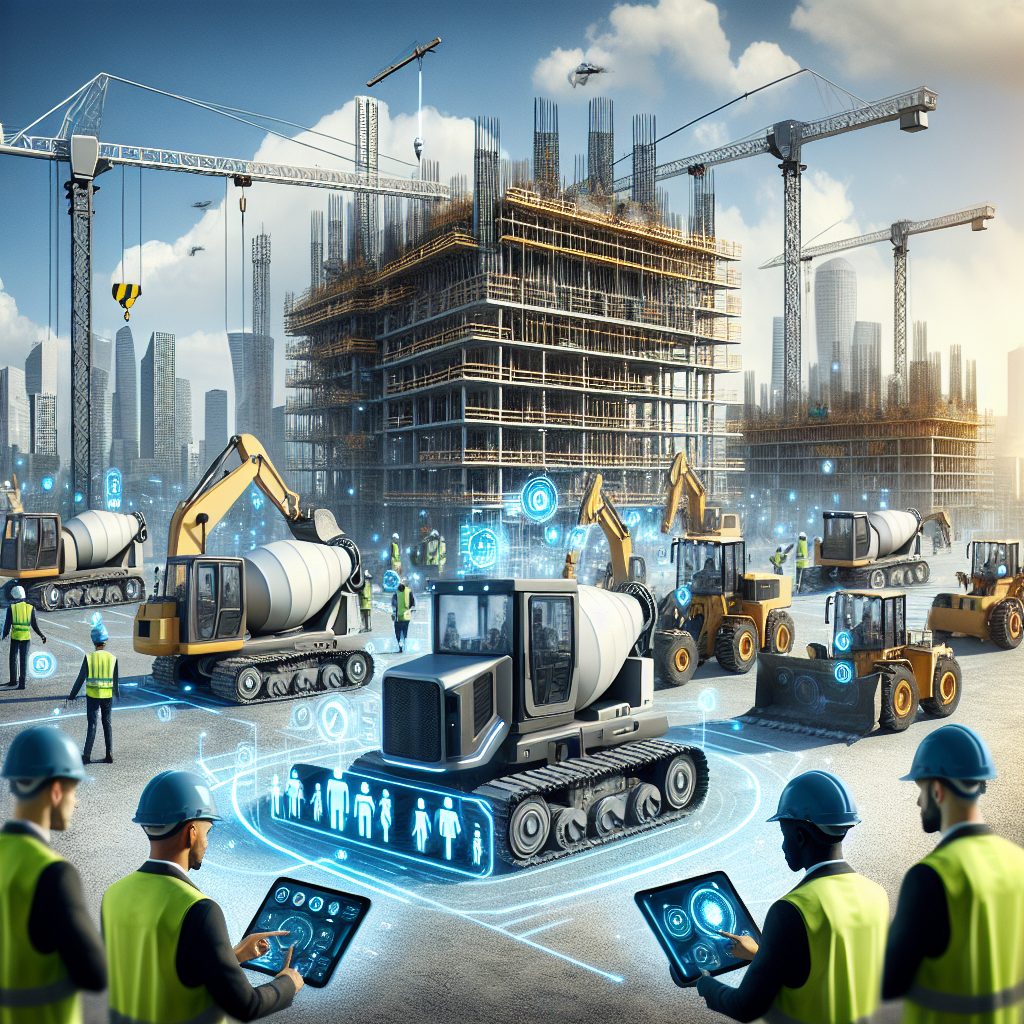Artificial Intelligence (AI) and automation are revolutionizing industries worldwide, and the construction industry is no exception. With the rise of AI technologies, construction companies are leveraging automation to streamline processes, increase efficiency, and improve safety on worksites. As the technology continues to advance, the future of AI automation in the construction industry looks promising, with the potential to transform the way projects are planned, designed, and executed.
One of the key areas where AI automation is making a significant impact in the construction industry is in project management. AI-powered project management tools can help construction companies optimize their workflow, track progress in real-time, and identify potential bottlenecks before they become major issues. These tools can also help project managers make data-driven decisions, improve resource allocation, and ensure projects are completed on time and within budget.
Another area where AI automation is being utilized in the construction industry is in design and planning. AI algorithms can analyze complex data sets, such as building codes, zoning regulations, and environmental factors, to help architects and engineers design buildings that are more efficient, sustainable, and cost-effective. AI-powered design tools can also generate 3D models, simulations, and renderings, allowing stakeholders to visualize the final product before construction even begins.
Furthermore, AI automation is being used to enhance safety on construction sites. AI-powered drones can conduct aerial surveys, monitor worksites for potential hazards, and track the movement of workers and equipment in real-time. This data can be used to identify safety risks, prevent accidents, and ensure compliance with safety regulations. AI-powered wearable devices can also monitor the health and well-being of workers, alerting supervisors to potential issues such as fatigue or dehydration.
In addition to project management, design, and safety, AI automation is also being used to improve the efficiency of construction processes. Robotics and automation technologies are being deployed to perform repetitive, labor-intensive tasks, such as bricklaying, welding, and excavation, with greater speed and precision than human workers. These technologies can also work in hazardous environments, reducing the risk of injury to workers and increasing overall productivity.
The future of AI automation in the construction industry is bright, with new advancements and applications emerging at a rapid pace. As the technology continues to evolve, construction companies can expect to see further improvements in efficiency, safety, and sustainability. With AI-powered tools and technologies becoming more accessible and affordable, even small and medium-sized construction firms can take advantage of the benefits of automation.
FAQs:
Q: How will AI automation impact the workforce in the construction industry?
A: While AI automation is expected to streamline processes and improve efficiency in the construction industry, it may also lead to job displacement for some workers. However, new opportunities for skilled workers to operate and maintain AI-powered tools and technologies are also expected to emerge.
Q: What are some of the challenges of implementing AI automation in the construction industry?
A: One of the main challenges of implementing AI automation in the construction industry is the initial cost of acquiring and implementing AI-powered tools and technologies. Additionally, there may be resistance from workers who fear that automation will replace their jobs.
Q: How can construction companies prepare for the future of AI automation?
A: To prepare for the future of AI automation, construction companies should invest in training their workforce to use AI-powered tools and technologies, adopt a culture of innovation and continuous learning, and collaborate with technology providers and industry partners to stay informed about the latest advancements in AI automation.
In conclusion, the future of AI automation in the construction industry is promising, with the potential to revolutionize the way projects are planned, designed, and executed. By leveraging AI-powered tools and technologies, construction companies can improve efficiency, safety, and sustainability, ultimately leading to better outcomes for projects and stakeholders. As the technology continues to evolve, construction companies that embrace AI automation will be better positioned to thrive in an increasingly competitive and rapidly changing industry.

